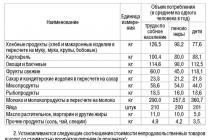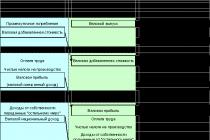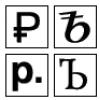Mass protests against the presidential decree aimed at eradicating social dependency. In the people, this legal act is better known as the "parasitism law." In several cities of the country at once - Minsk, Gomel, Mogilev, Brest, Vitebsk - thousands of protesters took to the streets. They carried placards reading "I am not a parasite" and demanded the repeal of the controversial decree. According to the protesters, this decree not only violates their civil rights, but also returns the country to a totalitarian past. Why the Belarusian authorities revived the forgotten law of the Soviet era and who are considered parasites in the republic, was sorted out.
idler citizens
Decree No. 3, designed to encourage Belarusians to work, was signed by the president in April 2015. Introducing this norm, the head of state, first of all, took care of the employment of the population. “For everyone to work, to make everyone work,” Lukashenka pointed out, setting the officials the task of taking measures to ensure the total employment of citizens. The question remained “how?”, because the Constitution stipulates only the right of people to work. The answer is found in the section on responsibilities. According to one of the articles of the main law, every citizen is obliged to participate in the financing of public spending by paying taxes. The fight against parasitism launched in the country was fastened to the implementation of this norm.
Since then, every resident of Belarus who has not been officially employed for more than six months and is not registered with an employment center is required to pay a special fee of about $250. It is noteworthy that the decree on idlers applies not only to citizens of the republic, but also to foreigners living here, as well as stateless persons. Those who try to evade this duty face a fine or arrest for 15 days with the indispensable involvement in socially useful work. On the other hand, law-abiding parasites who pay the prescribed tax to the treasury on time are entitled to a ten percent discount.
Students, priests, the incapacitated, the disabled, minors, women over 55 and men over 60 are exempt from paying the fee. Those who raised a child under the age of seven, parents of disabled children, as well as three or more minor offspring, were not considered loafers.
One step forward and two back
Belarusians accepted Decree No. 3 without enthusiasm. When it became clear that those recognized by the law as idlers were about to rebel, the authorities decided to slightly modify the law. At the beginning of 2017, Lukashenka approved its new version. Athletes and those undergoing alternative military service were removed from the list of "social dependents". Also, citizens of the country who found themselves in a "difficult life situation" deserved indulgence - for example, those who cared for sick relatives for more than six months.
At the same time, the updated decree unpleasantly surprised the parents of preschoolers. It turned out that non-working mothers and fathers of kindergarteners have now joined the ranks of the Belarusian "parasites". Also to the loafers unexpectedly writers, poets and journalists who allow themselves to criticize the current government and state policy. This is because they are members of creative associations not recognized by the authorities, which were not included in the list of trade unions recently approved by the Ministry of Culture of Belarus. By the way, one of these alternative associations includes a Nobel laureate who is not a member of the official Union of Writers of Belarus.
Moreover, a few days were given to the independent workers of the pen to pay the “tax on parasitism”: the decree of the cultural department came into force on February 17, and the deadline for paying the fee expired in the republic on February 20.
Wrath of parasites
On the eve of February 19, in a number of Belarusian cities, citizens who fell under the decree on social dependents protested. Up to 3,000 people took part in the action in Gomel. The protesters marched through the center of the city, from Vosstaniya Square to Lenin Square, chanting “No to Decree No. 3! Lukashenka, go away!” and "I'm not a parasite!" In Mogilev, Brest and Vitebsk, up to five thousand citizens gathered for protests.
Two days earlier, residents of the capital of the republic protested against the tax on idleness - about two thousand Minskers took part in the "march of angry parasites". The leaders of the protesters promised the authorities a nationwide action if the head of state did not repeal Decree No. 3. It is worth noting that although the speeches of opponents of the “parasitism law” were not sanctioned by the authorities, the police did not put obstacles in the way of citizens expressing dissatisfaction.
A week before the deadline for paying the fee in Belarusian, less than 46 thousand citizens paid it. The treasury received about 14 million rubles (equivalent to 433 million Russian rubles). And “letters of happiness”, notifying about the accrued payment, were sent to 470 thousand Belarusians. The head of the main department of taxation of individuals, Mikhail Rassolko, did not dare to predict how many citizens would pay the tax. According to him, local authorities and councils of deputies were literally flooded with complaints and requests. “Citizens are applying for the possibility of exemption from paying this fee,” the official said.

Who doesn't work...
Citizens of the country who came to the rallies demanded not concessions, but the complete abolition of the "decree on parasitism." According to them, it is illegal. “In the Tax Code today there is no such fee, which is in the decree,” notes trade union leader Gennady Fedynich. The Constitution of Belarus guarantees citizens the right to work. “A person has a right, this is his right, not an obligation!” - the politician emphasized.
Another participant in the rally, Maya Naumova, says she has been looking for a job for the second year. At the same place, she was reduced, since then it has not been possible to find a suitable vacancy. “I called one of the employers. He says - come for an interview, you will be the fifteenth, ”says the woman. She clarified that it was necessary to go to the other end of the city, and it was about the place of the seller.
Like other protesters, Maya received a notice from the tax office that she was under the decree "on social dependants." For the period of forced idleness, she must pay the state 360 Belarusian rubles (about 12,000 Russian rubles). "They are not here! Where, if I do not work? Mother [retired], what should my mother pay? What then to live on? Maya is outraged.
Vugar Imanov, a participant in the "March of Angry Parasites" from Slutsk, considers Decree No. 3 stupid and unfair. “If I was able to get a job since the beginning of 2016, only in December. If there are no vacancies, no jobs, what tax? he wonders.
Climbed into the lead
Meanwhile, in terms of unemployment growth, Belarus in 2016 overtook all the countries of the post-Soviet space. Over the past year, the number of officially registered unemployed in the republic has increased by more than a third. And in terms of the amount of benefits paid to the unemployed, the country remains an outsider. Citizens who are unable to get a job receive $13 a month from the state. At the same time, the official subsistence minimum, which takes into account the minimum set of food products necessary for maintaining health, is equal to 80 dollars in Belarus.

That this legal act will help society recover from consumer sentiment. The President stressed that every Belarusian should participate in the creation of social benefits. “A person who can work is not disabled, he must work and benefit his country,” the head of state is sure.
Belarus updated the decree on “social dependency”, adopting a new decree on “assisting citizens in finding employment”, “stimulating employment” and conducting preventive work with “asocial elements”. The new decree gives the right to local commissions without trial and at their own discretion to send “asocial” citizens to medical and labor dispensaries (LTP) for up to a year.
Decree No. 1 “On the Promotion of Employment of the Population”, which President Alexander Lukashenko signed on January 25, 2018, turned out to be not new, but already known, but “set out in a new edition” Decree No. 3 of April 2, 2015 “On the Prevention of Social Dependency”.
And since the local authorities in Decree No. 1 are assigned the role of people close to the population and responsible for the implementation of the decree, pro-government candidates in the local elections on February 18 received a topic to communicate with the electorate about how they will employ respectable citizens and force them to fulfill their public duty less respectable.
The official TV channel ATN has already called the decree "the matrix of a new social contract between the state and citizens."
Belarus, perhaps without realizing it, has admitted that the state exploits the population. After all, the concept of a social contract implies an agreement reached by citizens on the rules and principles of public administration with the corresponding legal form. In this case, the new decree shows that the state is actually a god and a king.
There is also good news: the fees for financing government spending, which have already been paid by citizens under Decree No. 3, the Ministry of Taxes and Duties promised to return. True, the timing of the return is not indicated, and the mechanism is unclear. It is only known that those who wish will need to write a return application.
But the decree still lacks the main thing: the definition of who, in fact, is "unemployed in the economy", as well as "the procedure for classifying able-bodied citizens" to this category of persons. Both should be determined by the Council of Ministers, moreover, by April 1, 2018, which adds an additional semantic connotation. In addition, Decree No. 1 introduced “resocialization of persons leading an asocial lifestyle” - a new concept that was not in the old version of Decree No. 3. Resocialization is supposed to be carried out in medical and labor dispensaries (LTP).
The decision on who leads a lifestyle that is asocial enough to be subjected to resocialization will be made by officials who are part of the "employment commissions." Decree No. 1 legalizes the activities of these commissions, which already exist in fact, and expands their powers, allowing decisions to be made on the placement of “asocial” persons in LTPs. Moreover, due to the lack of a legal framework, such decisions will be made at the discretion of officials. Currently, in addition to looking for work for those who wish to find it, the commissions draw up lists of people who, for whatever reason, do not want to find a job officially - potential candidates for "resocialization".
With this approach, it will be very easy to recognize a civil activist who is inconvenient to the authorities as a person leading an asocial lifestyle, and send him without trial to an LTP. Thus, the Belarusian authorities have created a mechanism for extrajudicial deprivation of liberty, and with a safety net in case of a scandal, since responsibility can easily be blamed on local officials.
“Earlier, only the court sent to LTP, and only people suffering from chronic alcoholism, drug addiction or substance abuse. And also those who did not reimburse the expenses for the maintenance of children by the state, if they were brought to administrative responsibility several times a year. Now what? If we literally understand the decree, then the executive committee will be able to send any parasite to the LTP for up to 12 months ... Without warning and bringing to administrative responsibility, ”lawyer Alexander Zhuk explained the situation on his Facebook page.
As for the general logic of both versions of the decree, it is based on the assertion that "parasites" do not pay taxes. But 52% of the Belarusian budget revenue for 2018 is a 20% value-added tax, which is levied on purchases by citizens and legal entities. Whether a citizen works or not, he becomes a taxpayer by going shopping in a store.
Instead of an annual "collection to finance public expenditures", popularly known as the "parasitism tax", the decree introduced "payment for state-subsidized services at their full cost." From January 1, 2019, this will affect all able-bodied citizens who are not officially employed, that is, who do not pay income taxes. Neither the services subject to payment nor their full cost are also defined by the decree. The Council of Ministers of Belarus should also sort out this issue, and also by April 1, 2018. Definitely, no one in Belarus has ever had a chance for such a bright April Fool's joke.
Context
Police state without embellishment
Belarusian news 27.03.2017Parasites opposed Lukashenka
Latvijas Avize 13.04.2017Law against parasites in Belarus
Open Democracy 01.07.2015Belarus is not a state for the people
Comrade online 11/25/2014 And although Tamara Krasovskaya, chairman of the Standing Committee of the House of Representatives on Labor and Social Affairs, clarified that housing and communal services will be billed at full cost, this did not bring complete clarity. The fact is that from January 1 of this year, all payers will be required to pay 100% of the cost of housing and communal services, except for thermal energy. Will the Council of Ministers confine itself to charging the “parasites” the full cost of heating and hot water, or will it introduce payment for other public services, the freeness of which is today guaranteed by the constitution? For example, article 45 of the constitution guarantees citizens of Belarus the right to free treatment in state institutions, without reservations about employment. “Interestingly, will calling the police, firefighters, and an ambulance also become paid?” asked video blogger Marat Minsky.In general, the entire Decree No. 1, according to experts, is extremely vague. “There is no direct action here. And how it will actually work is completely incomprehensible. I have never seen such a non-specific regulatory legal act,” said Sergey Balykin, chairman of the Association of Small and Medium Enterprises. And Valery Karbalevich, a political scientist and expert at the Strategy analytical center, believes that “the new decree contains mines” that will lead to serious consequences when the law is implemented. Both analysts believe that the authorities lacked the political will to recognize the previous Decree No. 3 as unsuccessful, and the new No. 1 was developed solely to save face.
Recall that Decree No. 3 appeared against the background of the economic crisis, when the authorities were thinking about how to replenish the budget, and citizens how to survive in the face of massive cuts and raising the retirement age. As a result, when in December 2016 the "parasites" began to receive notifications from the tax authorities, many were unable to pay the required amount. Although non-payers were threatened with fines and arrest for up to 15 days with involvement in public works, out of 470 thousand people who received notices, only 44.5 thousand paid the "parasite" tax - less than 10% of the total number of those who fell under the law. Instead of the planned 100 million dollars, this brought about 7.14 million dollars to the budget - a more than modest amount on a national scale.
It also turned out that the accounting system that identifies "parasites" does not work well, as well as the state employment system. That in small towns there is simply no work. Finally, Decree No. 3 did not provide for many situations, which is why the sick, relatives caring for them, demobilized soldiers and university graduates were recorded as "parasites". The mechanism for applying the decree had to be adjusted on the go, changing and adopting 109 normative acts in 34 months of its validity, and still it worked inefficiently. At the same time, discontent was growing in society. The wording "social dependency" was seen by many as an insult. People were also outraged by the fact that the state was taking away the last money from the unemployed, instead of helping them. The hunt for "parasites" in a number of cases led to the suicides of the unemployed, and street protests reached a scale that Belarus had not known since the mid-90s.
In the end, the authorities backed down. True, by suspending Decree No. 3, Lukashenka said that it would not be canceled, but "significantly improved." A modified version in the form of No. 1 was presented at the end of January.
The materials of InoSMI contain only assessments of foreign media and do not reflect the position of the editors of InoSMI.
: shadow tax (Venice), tax on tattoos and piercings (Arkansas, USA) or TV tax (Germany). Despite the outright absurdity, these taxes exist in the countries of the so-called. "first world" with a relatively stable level of wealth and do not apply to all categories of the population, because not every Arkansasian wears tattoos and piercings, or not every Venetian owns a cafe or shop that is taxed on the shadow. But the inhabitants of the geographical center of Europe were a little less fortunate.Decree No. 3. Tax on "parasitism".
On April 2, 2015, the President of Belarus signed Decree No. 3 “On the Prevention of Social Dependency”, popularly called the “Decree on Parasites”.This legal act was issued in order to encourage able-bodied citizens to work and ensure that they fulfill their constitutional obligation to participate in the financing of public expenditures - tells the text legislative act . Pensioners, incapacitated citizens, persons under 18 years of age, and the disabled are exempted from paying the "tax on parasitism". The fee is levied on citizens of the Republic of Belarus, as well as stateless persons and foreign citizens permanently residing in the territory of the Republic of Belarus, who“did not participate in the financing of public expenditures” (i.e. didn't work), or have done so for less than 183 days. The amount of the fee is 20 base units for the tax period (per calendar year), that is, approximately 236 USD at the exchange rate as of January 2017. Non-payment or incomplete payment leads to a fine of 2 to 4 basic units, or administrative arrest with involvement insocially useful work. Arbeit macht frei!!! It is noteworthy that the work of such a detainee for non-payment of tax during the period of administrative arrest, given the funds that the state spends on maintenance,depreciates by half. By January 2017 tax counted approximately 400 thousand "parasites", which is not so small for a country with a population of approximately 9.5 million people. While some developed capitalist countries are going to introduce an “unconditional basic income”, which in its essence does not lead to a solution to the problem, but only helps to smooth out capitalist contradictions, against its background, levying a tax on the unemployed looks truly medieval obscurantism.
Participation in the financing of government spending and VAT

What is the reason for the relevance of the problem? After all, it would seem that Decree No. 3 was adopted almost two years ago and, according to some, expresses the Soviet principle "he who does not work, he does not eat." Let's start with the fact that Article 56 of the Constitution of the Republic of Belarus, which is indirectly referred to in Decree No. 3, does oblige citizens to participate in financing government spending, but in fact, citizens already participate in financing government spending by paying VAT and other hidden taxes.
Article 56 Citizens of the Republic of Belarus are obliged to participate in the financing of public expenditures by paying state taxes, duties and other payments.
“The so-called parasites pay almost as much taxes as a working person, because they pay direct taxes - these are excises, VAT, import duties. They make up about 2/3 of all taxes in the country's budget,” Belarusian economist Leonid Zlotnikov comments on the situation.
The decree itself, adopted almost two years ago, actually came into force relatively recently. From November 2016 to January 2017, the number of "parasites" detected by the Ministry of Taxes and Duties increased by almost 8 times. Until November, some adjustments were made to it, and a database of citizens allegedly not involved in financing public expenditures was also being compiled. Immediately after the launch of a full-scale campaign to prevent social dependency, a suicide occurred in the city of Rogachev, which has already become resonant, the reason for which was the so-called "letter of happiness" (as the people called the notification of the need to pay tax). A woman who lost her job was simply unable to pay the fee ... and hung herself *. And in the meantime Dmitry Medvedev Alexander Lukashenko, says that there is no money, but you hold on endure everything and, according to some information, completes the construction of his 17th residence. And this tragic case is not the only one of its kindOn October 3, 60-year-old Aivar Yaskevich paid 360 denominated Belarusian rubles in tax for "parasitism", and on December 6 he threw himself from the 5th floor of his apartment in Osipovichi. He left a note and a receipt on the payment of the "tax on parasites" on the table.There it was written : "I have never been a parasite, a rapist, a robber, I have worked honestly all my life."
* Investigative Committee of the Republic of Belarus refutes this information and the cause of suicide calls "a depressive state." You can read about how capitalism is connected with depression on the WB .
"Who does not work shall not eat". Capitalism and unemployment

As for those who unconditionally approve such measures and remember the good old “who does not work, he does not eat”, it is worth realizing that Belarus is a country with a market economy, and the market economy has been, is and will remain a companion of unemployment. Thus, in the economy there is the concept of “natural unemployment rate”, and in Belarus it is 6% of the total economically active population 4 491,7 thousand people, that is, almostfour and a half million . It is also worth noting that the percentage of the “natural unemployment rate” is always given by liberal (who are now the majority) economists, one might say, ideally: this is the level of natural unemployment that should be, and not the one that actually exists. And of course, in conditions of economic crises, this percentage is inevitably exceeded for natural economic reasons, i.e. because of the crisis itself. Thus, even if the market economy works perfectly, there will always be a certain number of citizens who will not be able to find a job and pay the “parasitism” tax.
World practice**
In Bulgaria, since the time of the People's Republic, an article has been preserved in the criminal code, which can be conditionally called "for parasitism." For a long time she has not given real prison terms to anyone. Bulgarian law enforcers use it to combat prostitution and, as a rule, the matter is managed with minor fines . In other countries where the unemployment rate is quite high, there are no such taxes, although in Italy the unemployed approximately 40% . In German, the phrase "refusing to work" appeared in the era of the Third Reich. This designation was used as a stigma for those who disagreed with the regime. The Nazi authorities used fines for "refusing to work" to persecution their political opponents. After the war, Germany abandoned restrictions of this kind. Article 2, paragraph 1 of the Constitution of the Federal Republic of Germany are also strictly observed with regard to the right of a person to work or sit idly by. There is no such measure in France, where the unemployedofficial statistics 3.5 million. In Finland, it is beneficial to be unemployed at all. According to the newspaper "Helsingin Sanomat", on average, Finland spends 21,000 euros per month on the maintenance of one unemployed person. This amount includes both the allowance itself for a non-working Finn, andvarious services provided by the state.
**Based on materials.
Increasing exploitation
Obviously, the unemployment tax in Belarus has two purposes:
- Increased exploitation, and as a result - an increase in the profits of the state (and not only state) bourgeoisie.
- Preservation of a huge bureaucracy.
It is difficult to give other logical explanations for this. In fact, Decree No. 3 abolishes the right to an eight-hour working day, because in order to “fit into the market” and withstand competition, the employee will have to agree to the most slavish conditions of exploitation that are possible. The Ministry of Taxes and Duties does not even try hide it: “Competition has increased, people have begun to hold on to jobs.” The conditional “liberalization” of political life in Belarus is offset by authoritarian economic measures. In some regions, conscious citizens have already started collecting signatures for the repeal of Decree No. 3. However chartism and similar movements to him showed their failure in the 19th century. Even with a successful struggle through the collection of signatures and the abolition of the Decree, the natural crisis of the capitalist economy will not go anywhere, and instead of open forced labor, we will get a daily increase in prices, tariffs, a drop in wages, which in essence is also forced labor. The solution is not reforms, but a complete replacement of the existing system, where explicit and implicit coercion to work will disappear along with such concepts as unemployment and exploitation.
13.2 thousand Belarusians have not yet applied for a refund of the fee paid to finance government spending in 2015. The total amount of tax paid by them is about 3.59 million rubles (1.75 million dollars in equivalent). According to the presidential "On the Promotion of Employment of the Population", those who paid the fee to finance government spending should be returned the money.
The picture is illustrative. Photo: Daria Buryakina, TUT.BY
The tax authorities considered 49.5 thousand applications from Belarusians who wished to return the fee paid to finance government spending. So, in 2017, 20.5 thousand people applied for a refund, in 2018 - 27.5 thousand, and in the first half of this year - 1.5 thousand.
In total, taxes paid were returned for a total amount of 15.01 million rubles.
Recall that the fee for financing public spending in 2015 was paid by 62.7 thousand citizens in the amount of 18.6 million rubles.
To return the tax paid, you need to write an application to the tax office at the place of residence and provide an identity document. The tax authorities return the money either to an account in a Belarusian bank or in cash at the cash desks of Belarusbank. The money will be returned within a month from the date of application.
Parasitism tax
Recall that on April 2, 2015, he signed Decree No. 3 “On the Prevention of Social Dependency”, which introduced the so-called parasitism tax. According to it, a fee of 20 basic units was to be paid to the treasury by those who did not pay taxes at all or paid them less than 183 days a year.
In 2017, there were protests across the country against the tax on parasitism - with the detentions of participants and trials of them. On March 9 of the same year, the president decided to suspend the collection of fees from "parasites" for a year.
On January 25 last year, Alyaksandr Lukashenka decree No. 1, which provides for measures to promote employment of the population. The new decree abolished the collection of tax from those not employed in the economy, but introduced the payment of some housing and communal services at economically justified rates: from January 1 of this year - hot water supply, and from October 1 - gas supply and heat supply.
It became known that the President of Belarus January 25, 2018 signed Decree No. 1"On the promotion of employment", which completely changes the previously existing act of legislation.
So, the new decree is actually cancels the previous Decree of the President No. 3.
The main change is that, in accordance with the new Decree will not be charged from able-bodied non-working citizens collection to finance government spending.
Persons who were previously recognized as payers of this fee are exempted from paying it.
However, with January 1, 2019 years, persons previously recognized as "parasites" will pay for state-subsidized services for their 100% cost.
Attention!
According to the Decree of the Council of Ministers of the Republic of Belarus No. 314 dated April 24, 2018 able-bodied citizens not employed in the economy, pay the cost of utilities that correspond to full refund government costs for the provision of such services, namely:
- hot water supply
- heat supply
- gas supply (in the presence of individual gas heaters)
It is also indicated that commissions will be created that will provide the most individual approach to each citizen.
The commissions will be designed to assist in the employment of non-working citizens.
The work of specially created commissions will be aimed at:
- job creation
- employment assistance
- submission of temporary work
- retraining
In fact, the part of the article that goes below this one is leveled due to the unexpected signing of Decree No. 1 by the President.
Decree No. 3
In January 2017, the Decree of the President of the Republic of Belarus dated 01/12/2017 "On Amending the Decree of the President of the Republic of Belarus No. 3" was issued. It finalized the Decree of the President No. 3 "On the Prevention of Social Dependency". The head of state explained that he would not collect the fee for 2016 from those who had to pay, and those who paid would not pay for 2017, provided they were employed at work. This decree will not be canceled, but it will be worked out in connection with numerous complaints from citizens.
Who needs to pay the fee?
You need to pay those who have not worked for a year for more than 183 days. Only those who are included in the list of persons, which was recently supplemented by a new decree, do not pay:
- athletes of the national teams of Belarus
- students receiving full-time education for the first time
- Individual entrepreneurs who have paid taxes for more than 20 basic units, established as of January 1 of the corresponding tax period
- seriously ill
- people of creative professions who have confirmed membership in the creative union
- representatives of church organizations
- officially registered unemployed
- one of the parents raising a child aged 3 to 7 years who does not receive preschool education
- military personnel
- and others (see full list)
Thus, the state fights against those who do not work at all or work “unofficially”.
If you worked less than 183 days a year?
If you worked less than 183 days a year but paid taxes on 20 or more base values (the base value is considered as of January 1 of the year for which you pay the fee), then you are not subject to Decree No. 3. However, if you paid less than 20 base taxes in a year, you only pay the difference between the 20 base rates and the actual amount you paid.
Overpaid (recovered) fees are subject to refund or offset in the manner prescribed by tax legislation.
I'm at work, but I still receive a notice of payment of the fee
As we remember, in 2015, many people received a notice of tax payment. Do not be alarmed, this is a mistake of the tax authority. In this case, if you really worked, then it is enough to take a certificate from the place of work, which certifies the fact of your employment in this organization (company). Next, go to the tax authority that sent you a notice and they will cancel it for you.
No money for tax

In accordance with Presidential Decree No. 3, Local Councils of Deputies or local executive and administrative bodies have the right to exempt from paying the fee due to being in a difficult life situation. This situation is understood as an objective circumstance or a combination of them, which does not depend on the citizen, and he cannot overcome it at the expense of available funds (for example, the death of a spouse, inability to self-service).
Important!
For non-payment of tax or evasion of non-payment, a fine, arrest, as well as sending to forced labor are threatened.
Has the law affected unemployment?
In general, the number of unemployed in 2017 decreased compared to 2016. Unemployment was 0.6%, and in 2016-0.8%. Also, the demand for labor has increased, citizens have begun to apply more often to the bodies for labor, employment and social protection of the population. The number of unemployed by gender is dominated by men. Statistics goes every year in the direction of reducing unemployment.
Do you want to find a job? See vacancies in Minsk at the link:














